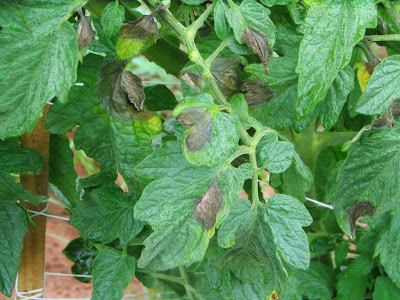Can You Mix Serenade With Copper? Organic Farmers Want to Know
go.ncsu.edu/readext?466581
en Español / em Português
El inglés es el idioma de control de esta página. En la medida en que haya algún conflicto entre la traducción al inglés y la traducción, el inglés prevalece.
Al hacer clic en el enlace de traducción se activa un servicio de traducción gratuito para convertir la página al español. Al igual que con cualquier traducción por Internet, la conversión no es sensible al contexto y puede que no traduzca el texto en su significado original. NC State Extension no garantiza la exactitud del texto traducido. Por favor, tenga en cuenta que algunas aplicaciones y/o servicios pueden no funcionar como se espera cuando se traducen.
Português
Inglês é o idioma de controle desta página. Na medida que haja algum conflito entre o texto original em Inglês e a tradução, o Inglês prevalece.
Ao clicar no link de tradução, um serviço gratuito de tradução será ativado para converter a página para o Português. Como em qualquer tradução pela internet, a conversão não é sensivel ao contexto e pode não ocorrer a tradução para o significado orginal. O serviço de Extensão da Carolina do Norte (NC State Extension) não garante a exatidão do texto traduzido. Por favor, observe que algumas funções ou serviços podem não funcionar como esperado após a tradução.
English
English is the controlling language of this page. To the extent there is any conflict between the English text and the translation, English controls.
Clicking on the translation link activates a free translation service to convert the page to Spanish. As with any Internet translation, the conversion is not context-sensitive and may not translate the text to its original meaning. NC State Extension does not guarantee the accuracy of the translated text. Please note that some applications and/or services may not function as expected when translated.
Collapse ▲8/17/2022 – Update. We have several more products in our “organic toolbox” now than we did eight years ago, but Serenade and copper are still important ones that we use. (Still receiving comments on this post; thanks for the feedback). In response to a comment received on 5/25/2021, use the recommended rates on the Serenade and copper labels.
10/1/2013 – On several occasions this summer the question was posed to me if it was okay to mix the fungicide Serenade with copper. Serenade is a biological fungicide that is OMRI approved and can be used in certified organic production systems. I have used Serenade tank-mixed with copper for many years in my studies (Organic Heirloom Studies) and on my own farm. At an organic tomato workshop this summer, one of the attendees said that Serenade and copper should not be mixed together because the copper would inactivate the Bacillus subtilis in the Serenade, rendering it ineffective. When I returned to my office I did a Google search on the topic and indeed found two university extension articles and several non-professional articles that said the two products should not be mixed because the copper would inactivate the Bacillus subtilis.
Concerned that I might not be giving out the best information, I contacted my resident plant pathologist who passed my question on to the folks at Bayer CropScience. Dr. Dennis Warkentin quickly responded, and with his permission, here is what he said,
The bottom line is, copper has no effect on the metabolic chemical ingredients of Serenade that are giving the disease protection, so has no detrimental effect on the product’s above-ground performance. Inactivation of the Bacillus spores, whether it occurs or not, is of no concern.”
Dr. Denise Manker, also of Bayer CropScience, asked me to add that that there is also no loss of foliar activity due to UV/sunlight.
So, those of us who find Serenade plus copper to be effective can continue to use it without concern that we are losing some activity as a result and others might want to try it out next season. Remember that according to the National Organic Program, copper must be used in a manner that minimizes accumulation in the soil.
And thank you to Dr. Warkentin and Dr. Manker for the speedy replies!



